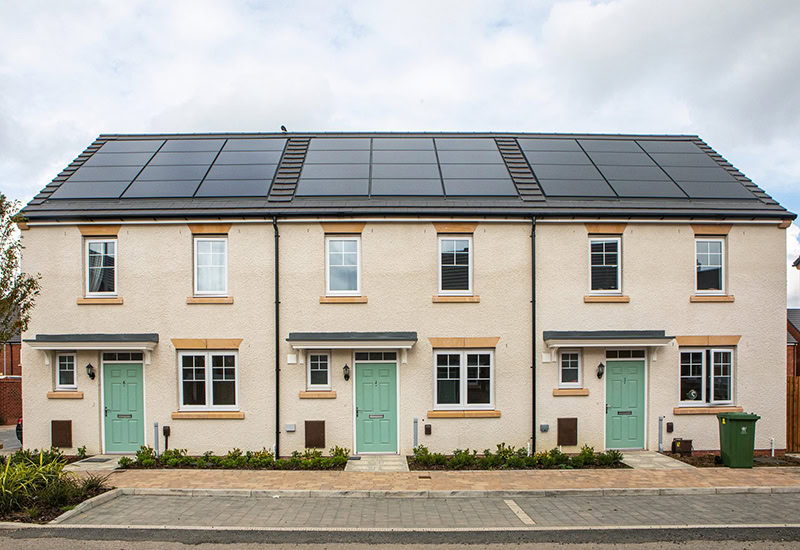The 4D Heat project was a desk-based study exploring whether electric heating in Scotland could be used to reduce the curtailment of renewable wind generation.
Passiv used technical modelling to assess the benefits of using the flexibility of residential heating to manage constraints.
The project identified that up to 540GWh (9%) of otherwise curtailed wind could be used by domestic heating across off-gas grid Scotland in 2030, saving £24m per year in wind constraint payments.
The 4D Heat project explored whether controlling electrified residential heating in Scotland could be used to reduce the curtailment of renewable generation, without adversely impacting the distribution network. The project was called 4D Heat, reflecting the potential for domestic heat to address all four challenges of decarbonisation, decentralisation, digitisation and democratisation inherent in the shift to a net zero future. The project was led by National Grid, with Passiv, Scottish & Southern Electricity Network, Delta-EE and Everoze as project partners.
National Grid experiences considerable constraint issues on the transmission network, much of which is due to the generation of renewable energy. These constraint issues arise predominantly due to an abundance of onshore wind power, 8.4GW of which is installed in Scotland, and limited transmission network capacity to move this power down to England and Wales where the predominant loads are located. National Grid constraint costs are currently over £500 million a year and are expected to increase.
The 4D Heat project was a desk-based study that explored the ability of heat flexibility to absorb wind that would otherwise have been curtailed due to England-Scotland transmission constraints and assessed the key drivers for achieving this.
Passiv used technical modelling to match the available flexibility from domestic electric heating with transmission network constraints. We used techno-economic modelling to assess the benefits of using the flexibility of residential heating to manage constraints, compared to the traditional solution of curtailing renewable generation. Desk-based research was then used to assess existing consumer perspectives on the potential use of residential heating to provide flexibility services. In addition, both existing and upcoming route-to-market business models were qualitatively analysed.
Passiv research indicated that by 2030, the amount of wind generation being wasted due to transmission constraints could be three times greater than all off gas grid electric heating demand across the UK. The project identified that up to 540GWh (9%) of otherwise curtailed wind could be used by domestic heating across off-gas grid Scotland in 2030, saving £24m per year in wind constraint payments and delivering a further £2m per year in environmental and social benefits.
Further Information
View the final report here – 4D Heat


